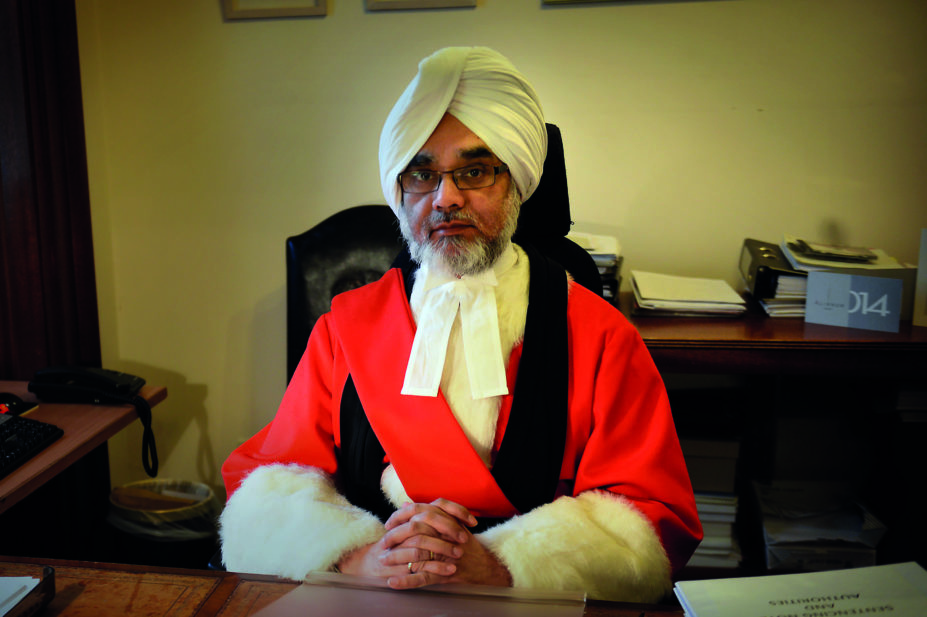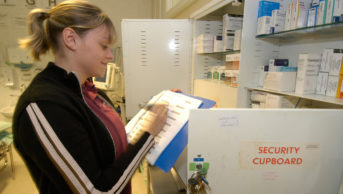
Anthony Devlin / PA Archive / PA Images
The Pharmacists’ Defence Association (PDA) has lost its High Court challenge over changes to professional standards for pharmacists, which it claimed threatened a pharmacist’s human rights.
High Court judge Mr Justice Singh rejected the PDA’s request for a judicial review of the new standards which govern a pharmacist’s conduct, ethics and performance drawn up by the professional regulator the General Pharmaceutical Council (GPhC) and which are due to be introduced in May.
Mr Justice Singh threw out the application on a number of grounds. He said, in his written judgment released on 11 April, that the interpretation of the standards by the PDA was “simply wrong”.
He said: “The standards need to be interpreted fairly and as a whole. They also need to be interpreted in a way which is rooted in real life and common sense.”
He accepted that the standards make it clear that pharmacists have an obligation to “behave appropriately at all times” — which applies both inside and outside the workplace.
But he said: “If the claimants are not polite over a board game they will not need to lose sleep over whether they can make the relevant declaration that they have complied with the standards.”
He believed, however, that there may be occasions, outside of normal working hours, where a pharmacist’s behaviour, unrelated to his or her professional work, “may be relevant to the safe and effective care which will be provided to patients”.
He gave as an example a pharmacist engaging in a “racist tirade on Twitter”, which “may well shed light on how he or she might provide professional services to a person from an ethnic minority”.
He said the GPhC has a “broad discretion” to set the appropriate standards expected and said: “The council has done nothing to exceed that broad discretionary power. The new standards are clearly not ultra vires. The suggestion to the contrary is unarguable.”
The judge also rejected the PDA’s case that the standards are unlawful because they are “uncertain”.
He said: “Any attempt to provide absolute precision would be undesirable given the context, which is regulation of a profession in the public interest. One cannot legislate for all circumstances in advance. There needs to be sufficient flexibility so as to protect the public interest as new factual situations arise.”
The judge went on to conclude that the claimants “cannot be regarded as victims” of human rights legislation and added: “They are therefore not entitled to rely on Convention rights in these proceedings.”
Commenting on the decision, director of the PDA Mark Pitt said: “Seeking a judicial review prior to the new standards coming into force… was always going to present some practical difficulties, but we believed it would be preferable to seek a resolution before May rather than wait and expose members to uncertainty and risk.”

Source: Pharmacists’ Defence Association (PDA)
Mark Pitt, director of the Pharmacists’ Defence Association (PDA), said that the judgment clarified some of the issues that had been at the heart of its legal challenge.
But he welcomed the judge’s statement because it clarified some of the issues that had been at the heart of its legal challenge, namely that they had to be rooted in “real life and common sense”.
If a pharmacist, for example, was impolite outside the workplace, this did not have to be professionally declared unless it had the potential to bring the profession into disrepute, the PDA said in a statement issued after the judgment.
The judgment also makes clear that “there will be certain patient-facing situations where the requirement to rely on courtesy, politeness and open body language simply cannot be observed,” it said.
“Should the standards be applied by the regulator or an employer in such a way that violates a pharmacist’s right to a private life or freedom from expressions, they leave themselves open to legal challenge,” it predicted.
The GPhC welcomed the decision. In a statement it said: “In today’s judgment the Mr Justice Singh affirms a number of important principles, including that pharmacy professionals should be expected to meet the standards at all times.”
It said the standards play “an important role” in helping the profession deliver “safe and effective care” and maintaining public confidence in pharmacy.
It now plans to push ahead with introducing the new standards and aims to launch a programme of “communications and engagement” about them with the profession.
The hearing to decide whether to grant a judicial review took place at the High Court in Birmingham on 23 March.


